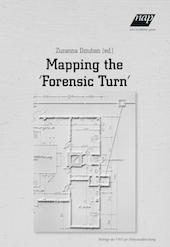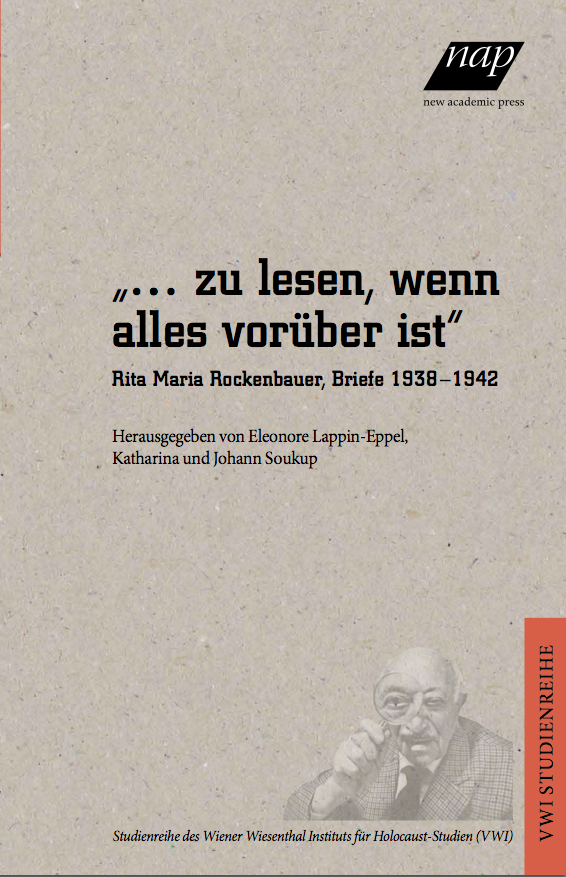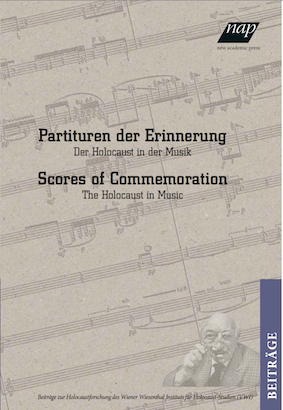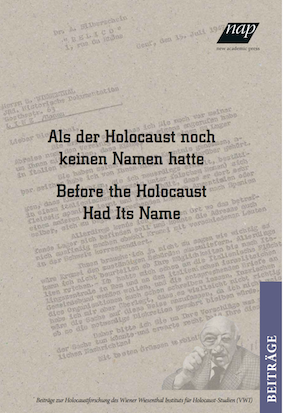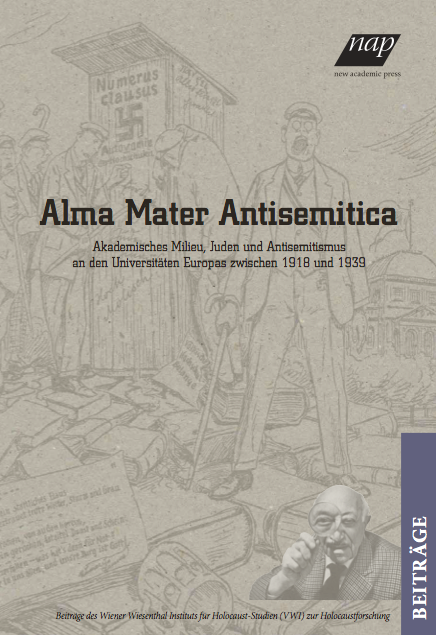 In the summer of 1925, as antisemitic political parties agitated against the Fourteenth Zionist Congress, attacks on Jews increased throughout Vienna. This paper examines how the Viennese police leadership at the Polizeidirektion Wien responded to the attacks and protests by increasing police presence in the streets, meeting with community leaders, and monitoring the press. It then places their behaviour in the political context of the period, arguing that despite the politicised interpretations of their role during the Congress, the best explanation for police behaviour is not political affiliation, but rather their professional commitment to ensuring public safety and maintaining Ruhe und Ordnung.
In the summer of 1925, as antisemitic political parties agitated against the Fourteenth Zionist Congress, attacks on Jews increased throughout Vienna. This paper examines how the Viennese police leadership at the Polizeidirektion Wien responded to the attacks and protests by increasing police presence in the streets, meeting with community leaders, and monitoring the press. It then places their behaviour in the political context of the period, arguing that despite the politicised interpretations of their role during the Congress, the best explanation for police behaviour is not political affiliation, but rather their professional commitment to ensuring public safety and maintaining Ruhe und Ordnung.
Editorial
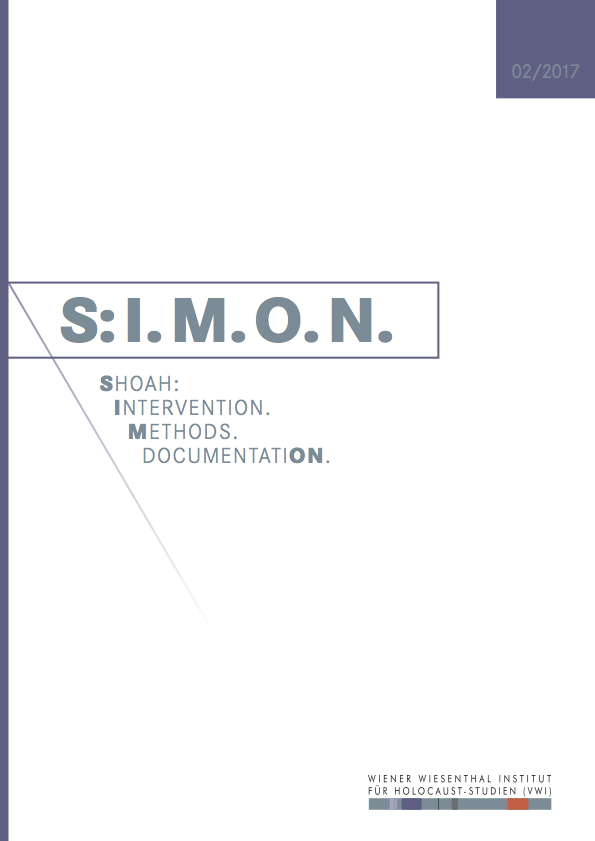 S:I.M.O.N. is an e-journal of the Vienna Wiesenthal Institute for Holocaust Studies (VWI). It appears twice a year in English and German language. S:I.M.O.N. aims at both a transnational and comparative history of the Holocaust and Jewish Studies in Central and Eastern Europe within the broader contexts of the European history of the 20th and 21st century, including its prehistory, consequences and legacies as well as the history of memory.
S:I.M.O.N. is an e-journal of the Vienna Wiesenthal Institute for Holocaust Studies (VWI). It appears twice a year in English and German language. S:I.M.O.N. aims at both a transnational and comparative history of the Holocaust and Jewish Studies in Central and Eastern Europe within the broader contexts of the European history of the 20th and 21st century, including its prehistory, consequences and legacies as well as the history of memory.
S:I.M.O.N. serves as a forum for discussion of various methodological approaches. The journal especially wishes to strengthen the exchange between researchers from different scientific communities and to integrate both the Jewish history and the history of the Holocaust into the different “national” narratives. It also lays a special emphasis on memory studies and the analysis of politics of memory. S:I.M.O.N. uses a double-blind review system, which means that both the reviewer’s and the author’s identities are concealed from each other hroughout the review process.
Shoah: The journal deals with the history of the Shoah from multidisciplinary, transnational and comparative perspectives. It seeks to integrate studies on Jews as well as on other groups of victims of the Holocaust, especially on Roma, and of so far less researched regions of (East) Central and (South) Eastern Europe.
Intervention. The journal reports on research projects and their transmission into public events. It also informs about current educational and remembrance programs.
Methods. The journal serves as a forum for the discussion of methodological approaches as, for instance, the everyday history, oral history, gender history, the history of violence, anti-Semitism and racism and the theory of memory and memory politics.
DocumentatiON. The journal contributes to critical approaches on using and interpreting archival materials in the 21st century.
Download the current issue S:I.M.O.N. 2017/2.
Articles
Natalia Aleksiun
Pleading for Cadavers. Medical Students at the University of Vienna and the Study of Anatomy
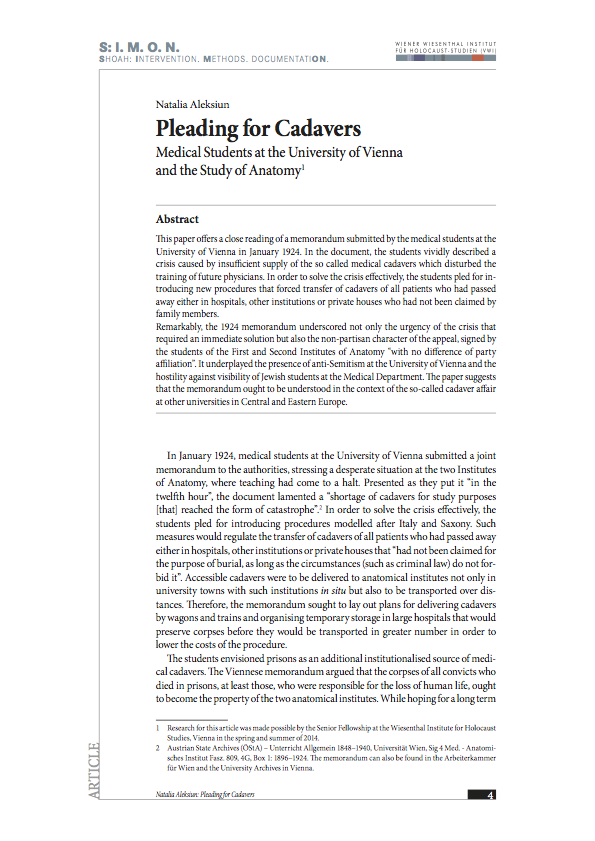 This paper offers a close reading of a memorandum submitted by the medical students at the University of Vienna in January 1924. In the document, the students vividly described a crisis caused by insufficient supply of the so called medical cadavers which disturbed the training of future physicians. In order to solve the crisis effectively, the students pled for introducing new procedures that forced transfer of cadavers of all patients who had passed away either in hospitals, other institutions or private houses who had not been claimed by family members. Remarkably, the 1924 memorandum underscored not only the urgency of the crisis that required an immediate solution but also the non-partisan character of the appeal, signed by the students of the First and Second Institutes of Anatomy "with no difference of party affiliation". It underplayed the presence of anti-Semitism at the University of Vienna and the hostility against visibility of Jewish students at the Medical Department. The paper suggests that the memorandum ought to be understood in the context of the so-called cadaver affair at other universities in Central and Eastern Europe.
This paper offers a close reading of a memorandum submitted by the medical students at the University of Vienna in January 1924. In the document, the students vividly described a crisis caused by insufficient supply of the so called medical cadavers which disturbed the training of future physicians. In order to solve the crisis effectively, the students pled for introducing new procedures that forced transfer of cadavers of all patients who had passed away either in hospitals, other institutions or private houses who had not been claimed by family members. Remarkably, the 1924 memorandum underscored not only the urgency of the crisis that required an immediate solution but also the non-partisan character of the appeal, signed by the students of the First and Second Institutes of Anatomy "with no difference of party affiliation". It underplayed the presence of anti-Semitism at the University of Vienna and the hostility against visibility of Jewish students at the Medical Department. The paper suggests that the memorandum ought to be understood in the context of the so-called cadaver affair at other universities in Central and Eastern Europe.
SWL-Reader
Paul A. Shapiro
Opening the Archives of the International Tracing Service (ITS). How did it happen? What does it mean?
Until the end of 2007, the International Tracing Service (ITS) was the largest collection of inaccessible records anywhere in the world that shed light on the fates of people from across Europe – Jews as well as members of virtually every other nation or nationality – who were arrested, deported, sent to concentration camps, and even murdered by the Nazis; who were put to forced labour, calculated in many places to result in death; and who were displaced from their homes and families, and unable to return home at the war’s end. These were documents that Allied forces collected as they liberated camps and forced labour sites across Europe in the last months of the war and during their post-war occupation and administration of Germany and Austria.
The archives of the ITS in Bad Arolsen, Germany, contains over fifty million documents produced in the Second World War era relating to the fates and destinies of over 17.5 million people. Using samples and case studies, the author, who led the campaign to open the archives, provides a view of the effort to open the collections for research and discuss the importance of this recent event for Holocaust survivors, victims of National Socialism, and scholars.
Events
Zoltán Halasi
Duschehubka
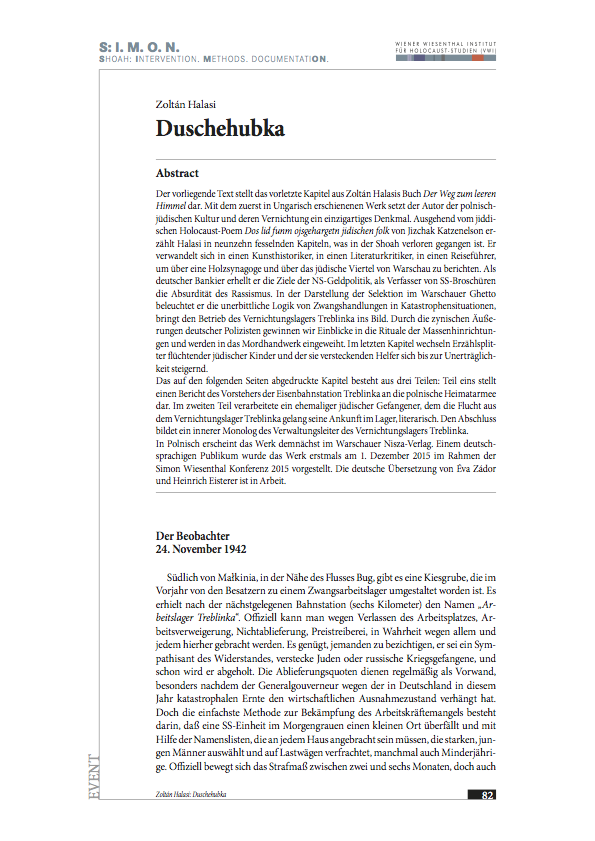 This text is the penultimate chapter of Zoltán Halasi's book Út az üres éghez (Road to an Empty Sky). With this work, which was first published in Hungarian, the author created a singular memorial to Polish-Jewish culture and its destruction. Setting out from the Yiddish Holocaust poem Dos lid funm ojsgehargetn jidischen folk by Itzhak Katzenelson, Halasi records what was lost in the Shoah in the course of nineteen compelling chapters. He takes on the grab of an art historian, a literary critic and a travel guide when he reports about a wooden synagogue and the Jewish quarter in Warsaw. In the role of a German banker, he illuminates the aims of the Nazi monetary policies, as a writer of SS brochures he highlights the absurdity of racism. Depicting a Selektion in the Warsaw ghetto, he shows the grim logic of compulsive acts in catastrophic situations, draws an image of the running of the extermination camp Treblinka. The cynical words of two German policemen provide an insight into the rituals of mass executions and introduce us to the craft of murder. The final chapter is an interplay of slithers of narrative by Jewish children on the run and by those who helped and hid them that borders on the unbearable.
This text is the penultimate chapter of Zoltán Halasi's book Út az üres éghez (Road to an Empty Sky). With this work, which was first published in Hungarian, the author created a singular memorial to Polish-Jewish culture and its destruction. Setting out from the Yiddish Holocaust poem Dos lid funm ojsgehargetn jidischen folk by Itzhak Katzenelson, Halasi records what was lost in the Shoah in the course of nineteen compelling chapters. He takes on the grab of an art historian, a literary critic and a travel guide when he reports about a wooden synagogue and the Jewish quarter in Warsaw. In the role of a German banker, he illuminates the aims of the Nazi monetary policies, as a writer of SS brochures he highlights the absurdity of racism. Depicting a Selektion in the Warsaw ghetto, he shows the grim logic of compulsive acts in catastrophic situations, draws an image of the running of the extermination camp Treblinka. The cynical words of two German policemen provide an insight into the rituals of mass executions and introduce us to the craft of murder. The final chapter is an interplay of slithers of narrative by Jewish children on the run and by those who helped and hid them that borders on the unbearable.
The chapter reproduced on the following pages has three parts: Part one is a Treblinka railway station master's report to the Polish Home Army. In the second part, a former Jewish detainee who managed to escape from the extermination camp Treblinka gives a literary treatment of his arrival at the camp. The final part consists of an inner monologue by the Treblinka extermination camp's director of administration.
The book will shortly be published in Polish at the Nisza publishing company in Warsaw. The German-speaking public was first presented with the work on December 1, 2015 at the Simon Wiesenthal Conference 2015. The German translation by Éva Zádor and Heinrich Eisterer is in progress.
Lindsay MacNeill: Guardian Angels? The Viennese Police Response to Antisemitic Violence during the 1925 Zionist Congress
„... zu lesen, wenn alles vorüber ist“
Rita Maria Rockenbauer, Briefe 1938 –1942
Wien 2014
Partituren der Erinnerung.
Der Holocaust in der Musik
Scores of Commemoration.
The Holocaust in Music
Wien 2015
Before the Holocaust Had Its Name. Early Confrontations of the Nazi Mass Murder of the Jews
Wien 2016
Akademisches Milieu, Juden und Antisemitismus an den Universitäten Europas zwischen 1918 und 1939
Academic Milieu, Jews and Antisemitism at European Universities between 1918 and 1939
Wien 2016



